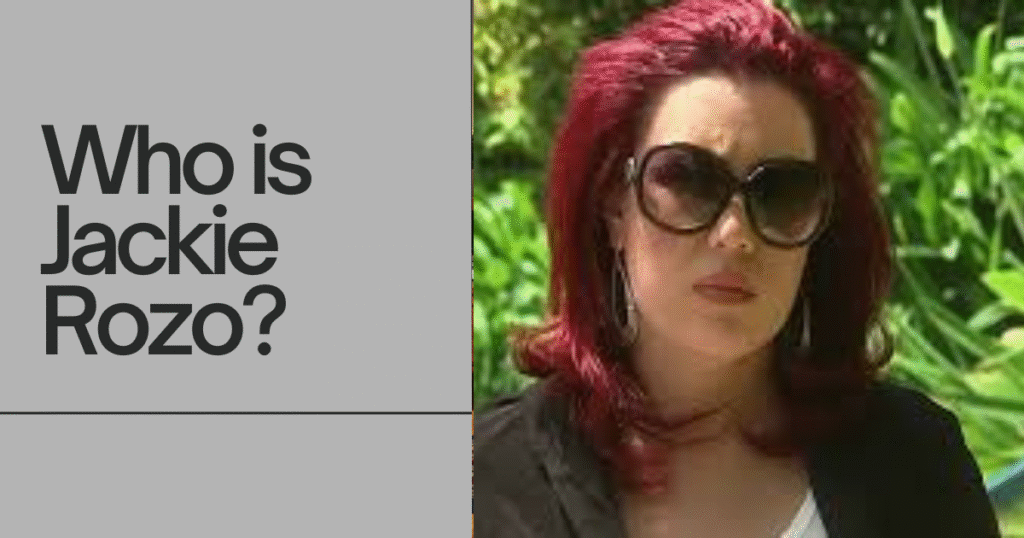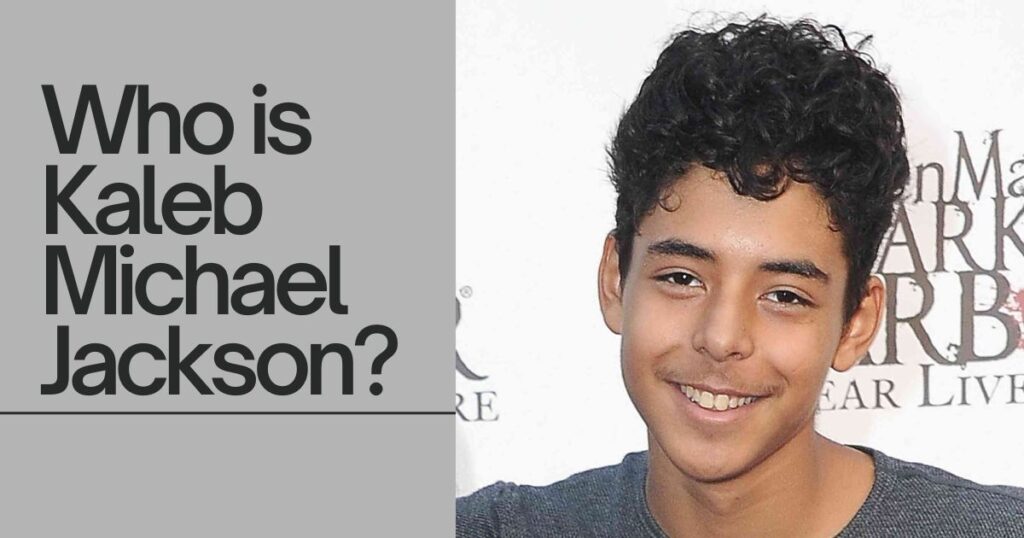Being born into America’s most famous musical dynasty sounds like a fairy tale. But for Francine Sinatra Anderson, carrying the Sinatra name came with a burden few people understand—a father who provided money but withheld acknowledgment, siblings from different mothers navigating the same rejection, and a grandfather whose legend overshadowed everyone.
She was born to Mary Wallner and Frank Sinatra Jr. during a four-year romantic relationship that never led to marriage. Reports reveal that Francine experienced neglect and rejection from her father, who only invested in her financially rather than emotionally. This pattern wasn’t unique to her—Frank Jr. fathered four children with different women, publicly acknowledging only one.
You’ll discover who Francine Sinatra Anderson really is beyond the famous surname, the complicated family dynamics that shaped her life, and how she built her own identity despite being one of the forgotten children of a legendary musical family.
Who Is Francine Sinatra Anderson?
Francine Sinatra Anderson is the eldest daughter of Frank Sinatra Jr., born November 16, 1972, to Mary Wallner during a four-year relationship. She is the granddaughter of legendary singer Frank Sinatra Sr. Despite her famous lineage, Francine has lived a deliberately private life, staying out of the entertainment industry and maintaining minimal public presence. She faced a complicated relationship with her father, who reportedly provided financial support but emotional distance throughout her life.
Quick Facts: Francine Sinatra Anderson
| Personal Detail | Information |
| Full Name | Francine Sinatra Anderson |
| Birth Date | November 16, 1972 |
| Current Age | 52 years old (as of 2025) |
| Father | Frank Sinatra Jr. (1944-2016) |
| Mother | Mary Wallner |
| Grandfather | Frank Sinatra Sr. (1915-1998) |
| Grandmother | Nancy Barbato Sinatra (1917-2018) |
| Half-Siblings | Francis Wayne Sinatra, Natalie Oglesby Skalla, Michael Francis Sinatra |
| Marital Status | Married (surname Anderson) |
| Children | Yes (number and names private) |
| Career | Not in entertainment industry |
| Public Presence | Minimal to none |
| Relationship with Father | Complicated (financial support, emotional distance) |
The Complicated Birth of Francine Sinatra Anderson
Francine Sinatra Anderson was born on November 16, 1972, to Frank Sinatra Jr. and Mary Wallner Ortaka. Her arrival came during a four-year romantic relationship between her parents that never resulted in marriage. This wasn’t a brief affair—four years suggests genuine connection—but something prevented Frank Jr. from making it official.
The timing matters. In 1972, Frank Jr. was 28 years old and already carrying the weight of his father’s towering legacy. Frank Sinatra Sr. was still at the height of his fame, performing sold-out concerts and maintaining his status as a cultural icon. For the younger Sinatra, every choice was measured against impossible standards.
Mary Wallner came from outside the entertainment industry, which may have been part of her appeal. Unlike the Hollywood relationships Frank Sr. was famous for, this was a more private connection. But privacy didn’t translate to commitment, and when Francine was born, she entered a family situation that would define much of her early life.
Reports indicate that Francine experienced neglect and rejection from her father, who chose to invest in her financially but not emotionally. This pattern—providing money while withholding presence—became Frank Jr.’s approach to fatherhood with most of his children. It’s a choice that reveals much about the pressures he faced and the emotional limitations he carried.
Frank Sinatra Jr’s Four Children: The Pattern of Affairs
Who is Francine Sinatra Anderson becomes clearer when you understand she wasn’t alone in her experience. Frank Jr. fathered four children with different women, creating a complex web of half-siblings who shared biology but not necessarily family connection.
The Four Children:
- Francis Wayne Sinatra – The eldest son, born from an early relationship. He was never publicly acknowledged by Frank Jr. and wrote about this rejection on Medium after his father’s death.
- Francine Sinatra Anderson – Born November 16, 1972, to Mary Wallner. The eldest daughter.
- Natalie Oglesby Skalla – Born to Mary Sue Oglesby. Like Francine, she grew up with limited acknowledgment from her father. She now works as a therapeutic riding instructor.
- Michael Francis Sinatra – Born March 1, 1987, to Cynthia McMurry. He was the only child Frank Jr. publicly acknowledged and the one he called his “one son.”
The age gap between Francine and her youngest half-sibling Michael is 15 years, spanning nearly a generation. By the time Michael was born, Francine was already a teenager processing her father’s absence and the knowledge that he had other children receiving different treatment.
Francis Wayne Sinatra wrote after their father’s death: “I found out around that time that he had had another son named Michael that he acknowledged. So that was his answer from then on. He only had one child, one son, named Michael Francis Sinatra. But we knew differently. The Family Court of New York knew differently.”
This selective acknowledgment created a hierarchy among siblings. Michael received public recognition, appearances at events, and the status of being “Frank Jr.’s son.” The other three existed in shadows—provided for financially but denied the legitimacy of public acknowledgment.
Growing Up Sinatra: Privilege Mixed with Rejection
Imagine being Francine in the 1970s and 1980s. Your grandfather is Frank Sinatra—one of the most recognizable names in American entertainment. Your father conducts orchestras and performs worldwide. Your last name opens doors everywhere.
Yet your father doesn’t publicly claim you. He provides financial support—tuition, living expenses, whatever money can buy—but he doesn’t show up to school events or introduce you as his daughter at industry gatherings. The message becomes clear: you’re a financial obligation, not a source of pride.
This duality—privilege without belonging—creates unique psychological challenges. You have access to opportunities most people never see, yet you’re excluded from the family narrative. When media profiles your father, you’re not mentioned. When he gives interviews about his life, you don’t exist in his story.
The Sinatra name itself became complicated. It could open doors, but using it meant confronting questions. “Are you related to Frank Sinatra?” Yes. “Oh, his granddaughter through Nancy or Tina?” No, through Frank Jr. “I didn’t know he had kids.” Exactly.
According to Daily Mail reports, the oldest children, Francis and Francine, were close. This makes sense—shared experience creates connection. When your father rejects you both, you find solidarity in each other. They understood what outsiders couldn’t: what it meant to be simultaneously part of and excluded from the Sinatra legacy.
Mary Wallner: The Mother Behind the Story
While researching who is Francine Sinatra Anderson, her mother’s story emerges as equally important. Mary Wallner spent four years in a relationship with Frank Jr., gave birth to his daughter, but never married him or achieved recognition within the Sinatra family structure.
What happened during those four years? Did she hope for marriage? Did Frank Jr. make promises? Or was the arrangement always understood to be temporary? The fact that she took the name Mary Wallner Ortaka in some records suggests she eventually married someone else, building a life beyond Frank Jr.
Raising Francine as a single mother—even with financial support—meant shouldering the daily responsibilities that money can’t buy. School pickups, homework help, emotional support during tough times. Mary provided the presence that Frank Jr. did not.
The four-year relationship timeline suggests this wasn’t a one-night mistake or brief affair. Four years is enough time to build a life together, to integrate families, to discuss future plans. The fact that it ended without marriage but resulted in a child indicates complications we can only speculate about from the outside.
Did the Sinatra family pressure Frank Jr. to avoid commitments that might dilute the family brand? Did his own struggles with identity and pressure make him incapable of full partnership? Whatever the reasons, Mary Wallner raised a daughter who carried one of entertainment’s most famous names while being raised largely outside that world.
The Anderson Chapter: Marriage and New Identity
Francine eventually married and took the surname Anderson, creating geographic and symbolic distance from the Sinatra dynasty. This name change represents more than just tradition—it’s a statement about identity and belonging.
By becoming Francine Anderson, she claimed an identity separate from her birth family. She could introduce herself without triggering instant recognition and questions. She could build relationships based on who she is rather than who her grandfather was. The Anderson surname became protective armor against unwanted attention.
Details about her husband remain private, which aligns with her overall approach to life. We don’t know his first name, his profession, or how they met. This absence of information is intentional. Unlike many people with famous backgrounds who monetize their connections through social media or reality television, Francine chose complete privacy.
Reports suggest she has children, making them Frank Sinatra’s great-grandchildren. But their names, ages, and life paths remain unknown. This generational privacy extension suggests Francine made deliberate choices about protecting her own family from the scrutiny she experienced growing up.
The Anderson family appears to support this privacy preference. There are no social media accounts, no interviews, no attempts to leverage the Sinatra connection. This consistency across a marriage and into another generation indicates shared values about public life and personal boundaries.
Life After Frank Jr.’s Death: The 2016 Turning Point
Frank Sinatra Jr. died suddenly on March 16, 2016, from a heart attack while on tour in Florida. He was 72 years old. For Francine, then 43, this loss was complicated by their relationship’s history.
When a parent dies, you grieve what was and what never will be. For Francine, that grief likely included mourning the father-daughter relationship that never fully existed. The conversations they never had. The acknowledgment she never received. Death makes future reconciliation impossible.
Frank Jr.’s obituaries mentioned his children, but coverage focused primarily on Michael, the acknowledged son. This pattern continued even in death—the children who existed in shadows remained there while Michael received attention as the primary heir to Frank Jr.’s legacy.
Estate matters after someone’s death often reveal family dynamics. While specific details of Frank Jr.’s estate distribution aren’t public, the pattern of financial support during his life suggests provisions were made for all four children. Money had always been his way of fulfilling paternal obligations, and that likely continued through inheritance.
For Francine, her father’s death may have brought relief mixed with sadness. Relief from hoping he might change, from the ongoing emotional complication of his partial presence. Sadness over losing even the limited connection they had. This ambivalence—feeling multiple contradictory emotions simultaneously—defines many relationships marked by parental absence.
Sibling Dynamics: Four Children, Separate Lives
The relationships between Frank Jr.’s four children reveal how family dysfunction ripples across generations. Francis and Francine were close, united by their shared experience of being their father’s oldest and most rejected children. They understood each other’s pain in ways outsiders couldn’t.
Natalie Oglesby Skalla, the other daughter, chose a career in therapeutic riding instruction—helping people with disabilities through equine therapy. This career choice suggests someone drawn to healing work, perhaps processing her own family wounds through helping others.
Michael Francis Sinatra, the acknowledged son, pursued acting and entertainment work. He appeared in films like “Walking Away” and “The Over/Under.” Being the favored child created different pressures—expectations to succeed, guilt over privileged treatment, and complicated relationships with siblings who resented his status.
Did the four siblings develop relationships after becoming adults? Did they gather after their father’s death? Did Michael understand the pain his special status caused the others? These questions remain unanswered because all four have maintained privacy about family dynamics.
What’s clear is that Frank Jr.’s choices created a fractured family legacy. His children shared DNA and a famous surname but not the security of knowing they all mattered equally to their father. This inequality shaped their identities and likely influences how they think about family, belonging, and legacy.
Why Privacy Became Francine’s Power
Understanding who is Francine Sinatra Anderson means understanding her strategic use of privacy. In an era where many people with famous connections monetize those relationships, Francine chose the opposite path. This wasn’t passive avoidance—it was active protection.
Privacy gave her control. She couldn’t control being born into the Sinatra family or her father’s treatment of her. But she could control what information about her life became public. She could decide whether to pursue entertainment opportunities that leveraged her connections. She could choose whether her children would grow up in the public eye.
This choice required sacrifice. She likely turned down opportunities—interview requests, book deals, reality television offers—that could have provided income and attention. The Sinatra name is worth money, and she chose not to spend that currency. This restraint suggests strong personal values about authenticity and dignity.
Her privacy also protected her mental health. Growing up with a father who provided money but withheld love creates deep wounds. Processing that hurt requires space away from public judgment and speculation. By staying private, Francine created room for healing without performance.
The contrast with her grandfather is striking. Frank Sr. lived publicly, cultivating his image through carefully managed press relationships, film roles, and constant performance. Francine flipped that completely—becoming interesting precisely because she refuses visibility. Her absence from public life makes her story more compelling than another celebrity memoir would.
The Sinatra Legacy: What Francine Inherits
When people discuss the Sinatra legacy, they typically mean Frank Sr.’s music, his cultural impact, and his influence on American entertainment. But legacies involve more than talent—they include patterns of behavior, family dynamics, and emotional inheritance.
Francine inherited several things from the Sinatra family:
The gift of doors opening: Her last name created opportunities throughout her life, whether or not she used them.
The burden of comparison: Being Frank Sinatra’s granddaughter meant people had expectations based on his talent and her father’s career.
The pattern of emotional distance: Frank Sr. was known for charm and charisma but struggled with intimate relationships. This pattern appeared in Frank Jr.’s parenting, affecting Francine directly.
The value of artistic excellence: Growing up surrounded by music of the highest caliber—even at a distance—creates standards for quality and craftsmanship.
The knowledge that fame isn’t everything: Watching her grandfather’s fame fail to create family cohesion or her father’s career fail to bring him peace taught valuable lessons about success’s limits.
She chose which parts of this inheritance to claim. The Sinatra name stays with her, connecting her to history. But she rejected the performance aspect—the need to live publicly or pursue entertainment. She accepted the financial security while creating emotional boundaries her father never gave her.
What Francine’s Story Teaches About Famous Families
Francine Sinatra Anderson’s life challenges romanticized notions about celebrity families. From the outside, being Frank Sinatra’s granddaughter looks like winning life’s lottery. The reality was far more complicated.
Money doesn’t replace presence. Frank Jr. provided financially but withheld emotional engagement. Research on child development confirms what Francine likely felt—children need connection more than material comfort. Financial support without emotional investment creates confusion about self-worth.
Famous surnames create identity challenges. Francine had to separate her sense of self from her family’s public image. Who am I beyond this name? This question likely occupied years of her life, requiring conscious work to develop authentic identity.
Privacy is powerful. In a culture that equates visibility with value, Francine’s choice to remain private feels radical. Her story suggests that opting out of public life—even when you could easily access it—creates space for genuine rather than performed existence.
Family dysfunction crosses all economic boundaries. Wealth and fame didn’t protect the Sinatra family from patterns of emotional distance, complicated relationships, and generational pain. These issues appear in every family system; money just changes their expression.
Resilience means building your own life. Despite a complicated childhood and a father who struggled to fully claim her, Francine built a stable life. Marriage, children, privacy, and apparent peace—these outcomes required intention and healing work.
The Current Picture: A Life Well-Lived
Now 52 years old, Francine Sinatra Anderson appears to have achieved what her grandfather and father never quite managed—contentment outside of performance. Her privacy makes it impossible to know details, but the absence of drama or public crisis suggests stability.
She doesn’t grant interviews discussing her famous family. She doesn’t sell stories about her childhood. She doesn’t appear on celebrity reality shows or maintain public social media accounts. This consistency over decades indicates someone who made peace with her choices and maintains boundaries despite external pressure.
Her children are growing up outside public scrutiny, a gift she never received. They carry Frank Sinatra’s DNA and family history but don’t carry the burden of public expectations. This generational shift—from performance to privacy—represents its own form of legacy building.
We can’t know if Francine is happy, satisfied, or still processing her complicated family history. Privacy protects that interior life from speculation. But the evidence suggests someone who learned from family pain and chose differently for herself and her children.
Frequently Asked Questions
Who is Francine Sinatra Anderson and what is she known for?
Francine Sinatra Anderson is the eldest daughter of Frank Sinatra Jr., born November 16, 1972, making her 52 years old as of 2025. She is the granddaughter of legendary entertainer Frank Sinatra Sr. Unlike her famous relatives, Francine is known primarily for choosing privacy over public life despite her famous lineage. She experienced a complicated relationship with her father, who provided financial support but limited emotional presence, a pattern that affected three of his four children from different relationships.
What was Francine Sinatra Anderson’s relationship like with her father Frank Sinatra Jr.?
Francine’s relationship with her father was marked by emotional distance despite financial support. Reports indicate Frank Jr. had four children with different women but publicly acknowledged only one son, Michael Francis Sinatra. Francine, born to Mary Wallner during a four-year relationship that never led to marriage, faced rejection and neglect from her father who chose to invest financially rather than emotionally in her life. Court records confirmed his paternity, but he rarely claimed her publicly. This pattern created lasting effects on family dynamics and shaped Francine’s decision to maintain privacy as an adult.
Does Francine Sinatra Anderson have siblings and who are they?
Yes, Francine has three half-siblings from her father’s relationships with different women. Her siblings are Francis Wayne Sinatra (the eldest, who publicly wrote about being unacknowledged by their father), Natalie Oglesby Skalla (who works as a therapeutic riding instructor), and Michael Francis Sinatra (born March 1, 1987, who was the only child Frank Jr. publicly acknowledged). The age gap between Francine and Michael spans 15 years. Reports suggest Francine and Francis, both experiencing similar rejection, developed a close relationship based on shared experience.
Conclusion
Who is Francine Sinatra Anderson? She’s the eldest daughter of Frank Sinatra Jr. who transformed childhood rejection into adult resilience. Born into one of entertainment’s most famous families, she experienced the complicated reality behind celebrity glamour—financial support without emotional presence, a famous surname without family belonging, and the burden of a legacy she never asked to carry.
Her choice of privacy over performance, her creation of stable family life despite her complicated childhood, and her refusal to monetize her famous connections reveal someone who learned from family pain and chose differently. Francine Sinatra Anderson proves that sometimes the most powerful response to a famous name is simply building a good life on your own terms, away from cameras and public judgment.
The Sinatra legacy includes more than music—it includes lessons about family, identity, and the courage required to write your own story.









